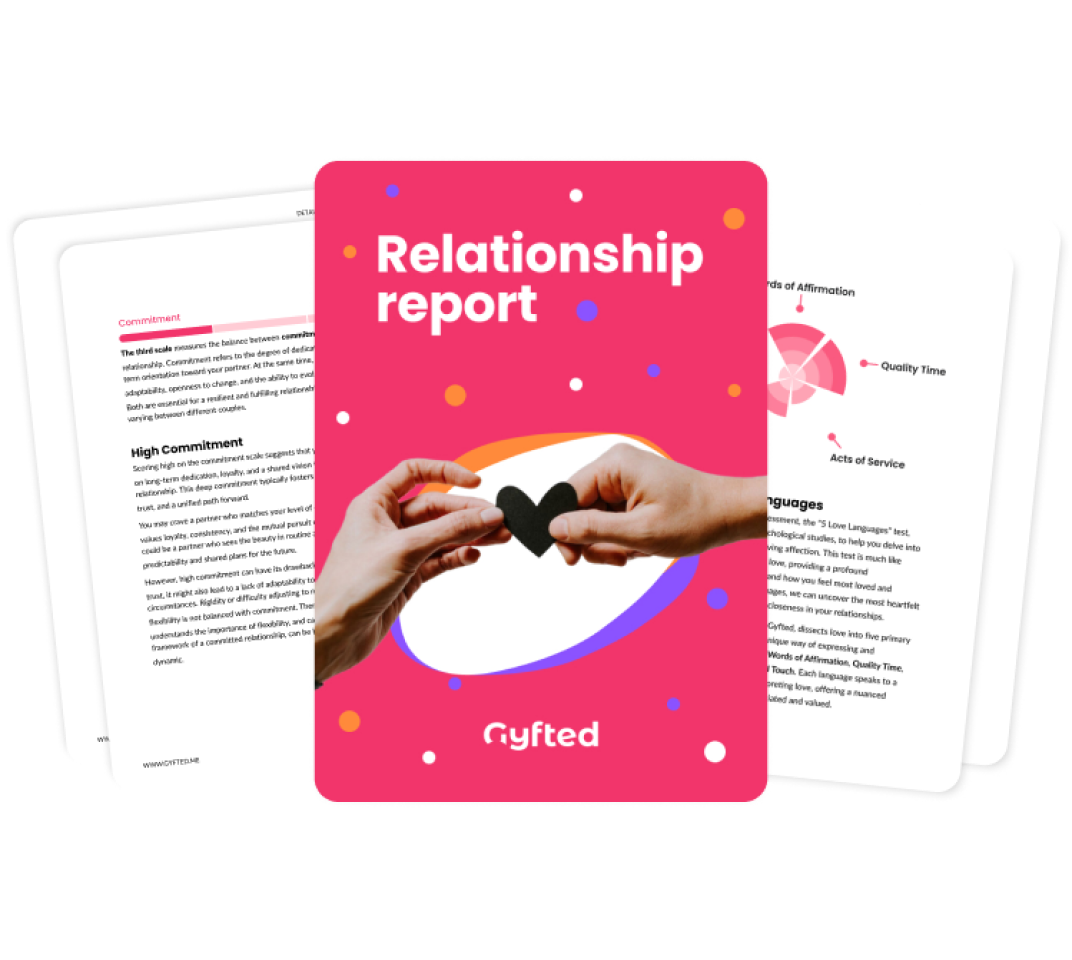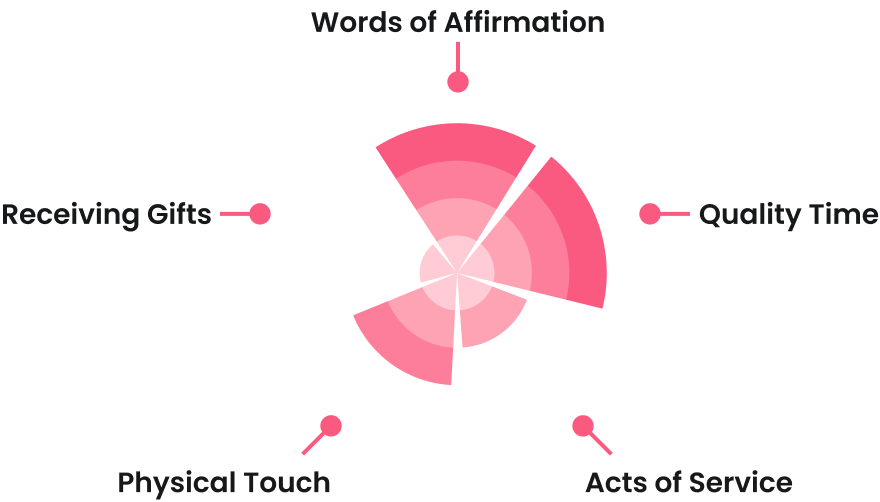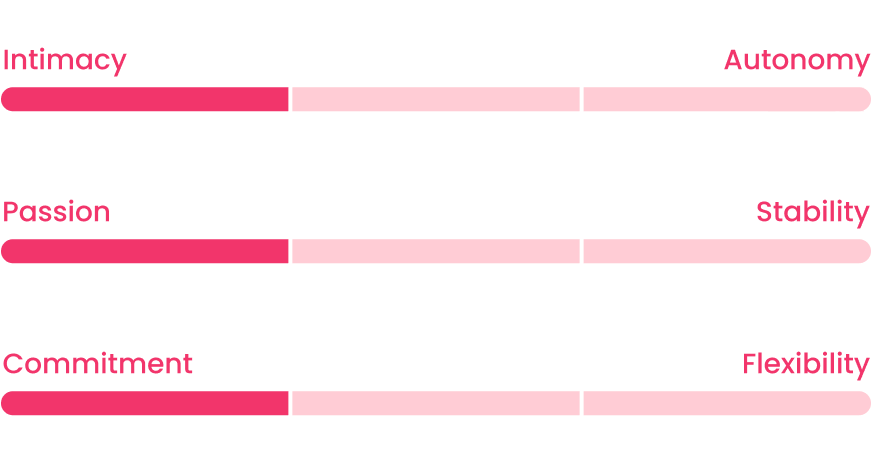Relationship report
Love Characters Test

Love Assessment
Hawk Tuah Love Quiz
Inside this Love Character Test PDF

5 Love Language quiz pdf
The "5 Love Languages" test is like discovering a fresh dialect in the language of love. It uncovers your natural tendencies in both showing and feeling affection, highlighting how you best connect and feel cherished. Be it through sincere words of affirmation, shared moments of quality time, the exchange of gifts, mutual acts of service, or physical intimacy, it evaluates what works best for you. As part of the report you’ll get the love language test pdf.

3 Love Characters test pdf
The "Love Characters" test illustrates your romantic character traits - the natural ‘you’. Grounded in Sternberg's triangular theory of love, it measures your inclinations in three areas: intimacy, passion, and commitment. The harmony you seek among these dimensions reveals the type of relationship that most resonates with you. You’ll get the love character test pdf.

Combined dual test feedback on your unique love dynamics
Our goal is to foster understanding, growth, and empowerment. Each test offers a distinct perspective on your romantic encounters, and collectively, they give thorough insights into your individual relationship dynamics. We combine data from both tests into unique insights that can help you act and be more self-aware.

Relationship Report with Practical Recommendations
Through this report you'll get a solid grasp of your relationship dynamics, enabling you to communicate your needs and desires more effectively with your partner. You’ll become more self-aware by seeing how you like to experience romance, how you naturally show and receive affection, as well as how you balance closeness, excitement, and commitment in a relationship, to get a clearer picture of how you relate to others. This understanding will give you the confidence to talk about your needs and desires more openly and honestly.